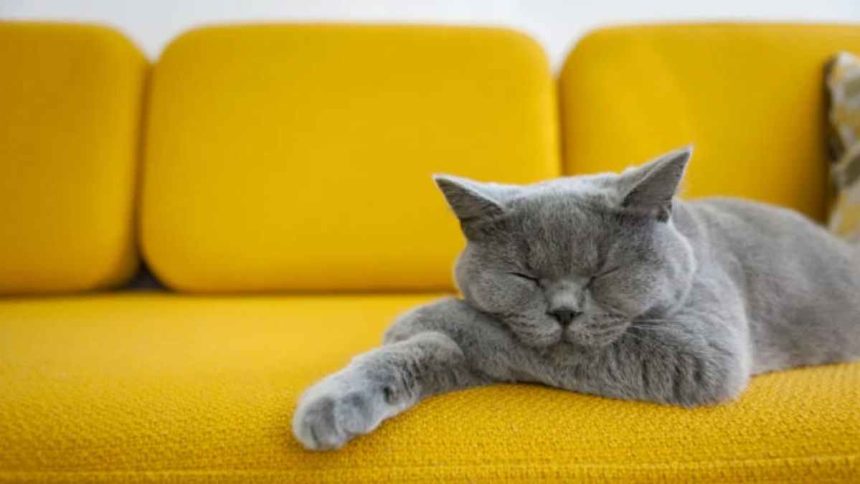Cats are known for their longevity, but as they age, their bodies undergo changes that can lead to age-related health issues. Proper care and attention are essential to keep them healthy and comfortable during their golden years. This article will provide a comprehensive guide to aging cat health, including the changes they undergo, common age-related health issues, preventive care, dietary adjustments, and expert tips on maintaining their quality of life.
Changes Aging Cats Undergo
As cats age, their bodies undergo various changes, both physical and behavioral. Here are some common changes that aging cats may experience:
i. Reduced Activity –
Older cats may become less active and playful, preferring to spend more time sleeping or resting.
ii. Changes In Sleep Patterns –
Aging cats may sleep more or less than they used to, and their sleep patterns may become disrupted.
iii. Changes In Vision And Hearing –
Cats’ senses of vision and hearing can decline as they age, making it harder for them to see and hear.
iv. Dental Issues –
Older cats are more prone to dental issues such as periodontal disease, which can cause pain, discomfort, and difficulty eating.
v. Anxiety –
Some cats may become more anxious or stressed as they age, especially if they have health issues or changes in their routine or environment.
vi. Irritability –
They become more irritable and easily agitated, especially if they’re in pain or discomfort.
vii. Cognitive Changes –
Cats can experience cognitive decline as they age, leading to confusion, disorientation, and forgetfulness.
It’s essential to be aware of these changes and take appropriate action to maintain your cat’s health and quality of life. Regular veterinary check-ups can help detect health issues early, while environmental modifications and mental stimulation can help keep your cat comfortable and happy.
Common Age-Related Health Issues
As cats age, they become more prone to certain health issues. Several common age-related issues include:
Arthritis
Arthritis is a common condition in older cats, affecting the joints and causing stiffness, discomfort, and reduced mobility. Signs of arthritis in cats can include limping, difficulty jumping or climbing, and reluctance to move.
Kidney Disease
Kidney disease is another common health issue in aging cats, with up to 30% of cats over the age of 10 developing some degree of kidney disease. Signs of kidney disease can include increased thirst and urination, weight loss, vomiting, and lethargy.
Diabetes
This can occur in aging cats, causing high blood sugar levels and leading to excessive thirst, weight loss, and lethargy. Diabetic cats may require insulin injections and a specialized diet to manage their condition.
Hyperthyroidism
A hormonal disorder in older cats, caused by an overactive thyroid gland. Signs of hyperthyroidism can include weight loss, increased appetite, vomiting, diarrhea, and hyperactivity.
Cancer
Cats can develop various forms of cancer as they age, including lymphoma, leukemia, and mammary gland tumors. Signs of cancer in cats can include lumps or bumps on the body, weight loss, lethargy, and loss of appetite.
Preventive Care for Aging Cats
Preventive care is crucial for maintaining your aging cat’s health and quality of life.
i. Regular Veterinary Check-Ups –
Senior cats should visit the vet at least once a year for a comprehensive health exam, blood tests, and any necessary vaccines.
ii. Dental Care –
Good oral hygiene is essential for preventing dental issues in aging cats. Regular brushing and professional dental cleanings can help keep your cat’s teeth clean and healthy.
iii. Balanced Diet –
Older cats require a balanced and nutritious diet to maintain their health. Feed your senior cat a high-quality diet that’s appropriate for their age and health condition.
iv. Exercise –
Regular exercise is important for keeping your senior cat active and maintaining a healthy weight. Encourage your cat to play, climb, and move around to keep its muscles and joints healthy.
v. Environmental Modifications –
Make your senior cat’s environment comfortable and safe. Consider providing a comfortable bed, litter box, and food and water bowls that are easy to access.
vi. Mental Stimulation –
Keeping your senior cat mentally stimulated is essential for maintaining cognitive function and preventing boredom. Provide puzzle toys, cat trees, and interactive playtime to keep your cat engaged.
Dietary Adjustments for Aging Cats
As cats age, their nutritional needs change, and they require a different diet. Feeding schedule adjustments can also be necessary to help manage health issues such as diabetes. Choosing the right food for your aging cat is essential to meet their nutritional needs and maintaining their health. Talk to your veterinarian to help determine the best diet for your cat.
Expert Tips on Maintaining Quality of Life for Aging Cats
Maintaining a routine can help reduce anxiety and provide comfort to your cat. Making the home environment comfortable and safe is essential to keep your cat happy and healthy. Providing mental stimulation, such as toys and puzzles, can help keep your cat active and mentally stimulated. Supplements can also be beneficial for cats with certain health issues, such as arthritis.
Aging cat health is essential to keep your cat happy and comfortable during its golden years. Changes in physical and behavioral characteristics can occur, and it’s essential to take appropriate action to maintain your cat’s health. Preventive care, dietary adjustments, and expert tips can help keep your cat healthy and happy.
Understanding common cat diseases can also help you recognize the signs and seek veterinary care promptly. Always consult with your veterinarian before making any changes to your cat’s diet or lifestyle and follow several cat health tips. By taking care of your aging cat, you can ensure they live a long, healthy, and happy life.
Lynn Martelli is an editor at Readability. She received her MFA in Creative Writing from Antioch University and has worked as an editor for over 10 years. Lynn has edited a wide variety of books, including fiction, non-fiction, memoirs, and more. In her free time, Lynn enjoys reading, writing, and spending time with her family and friends.















